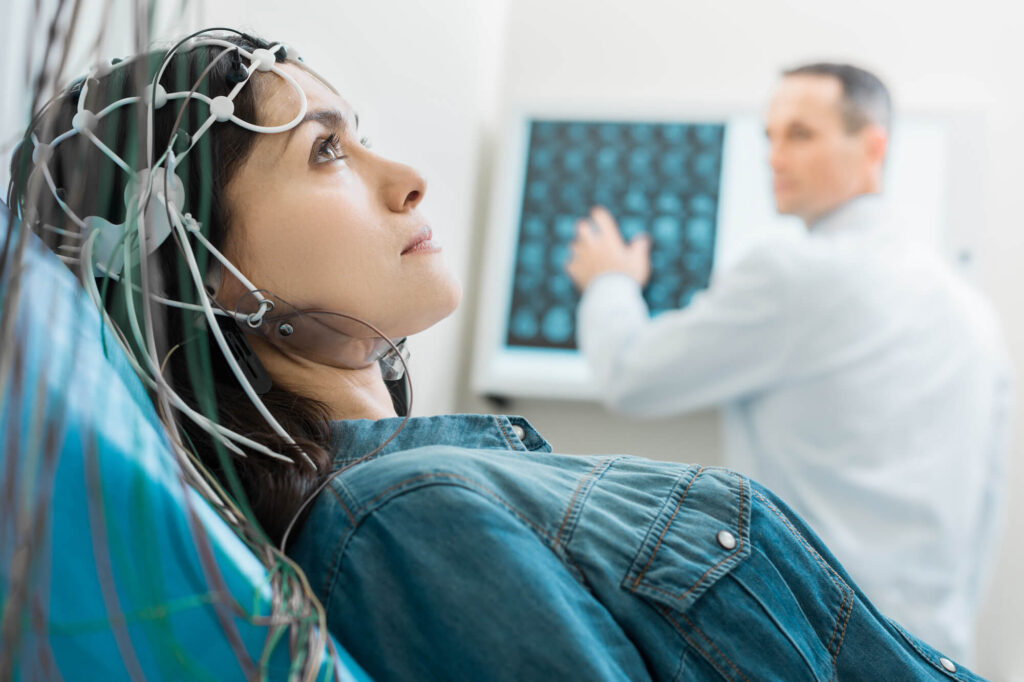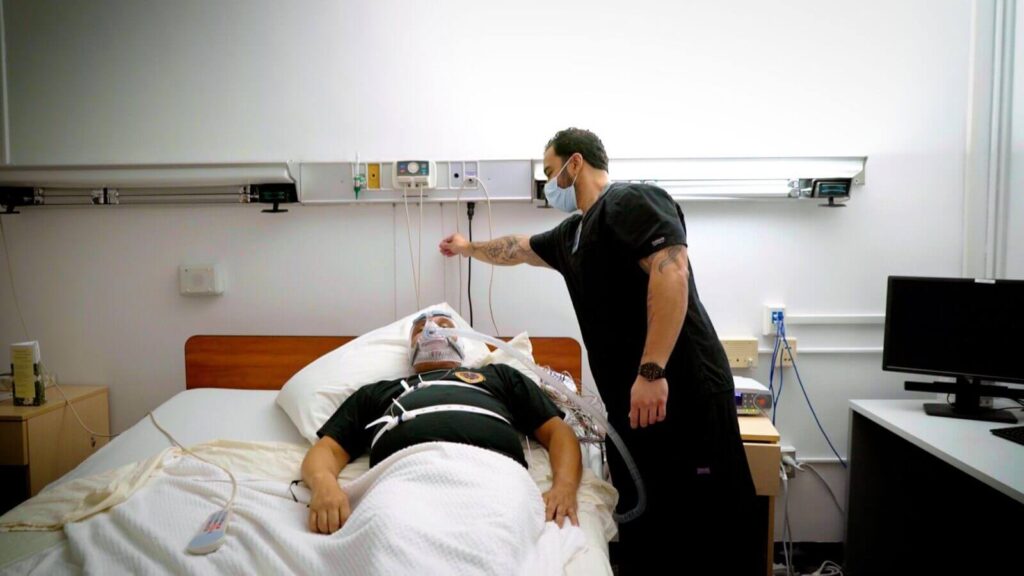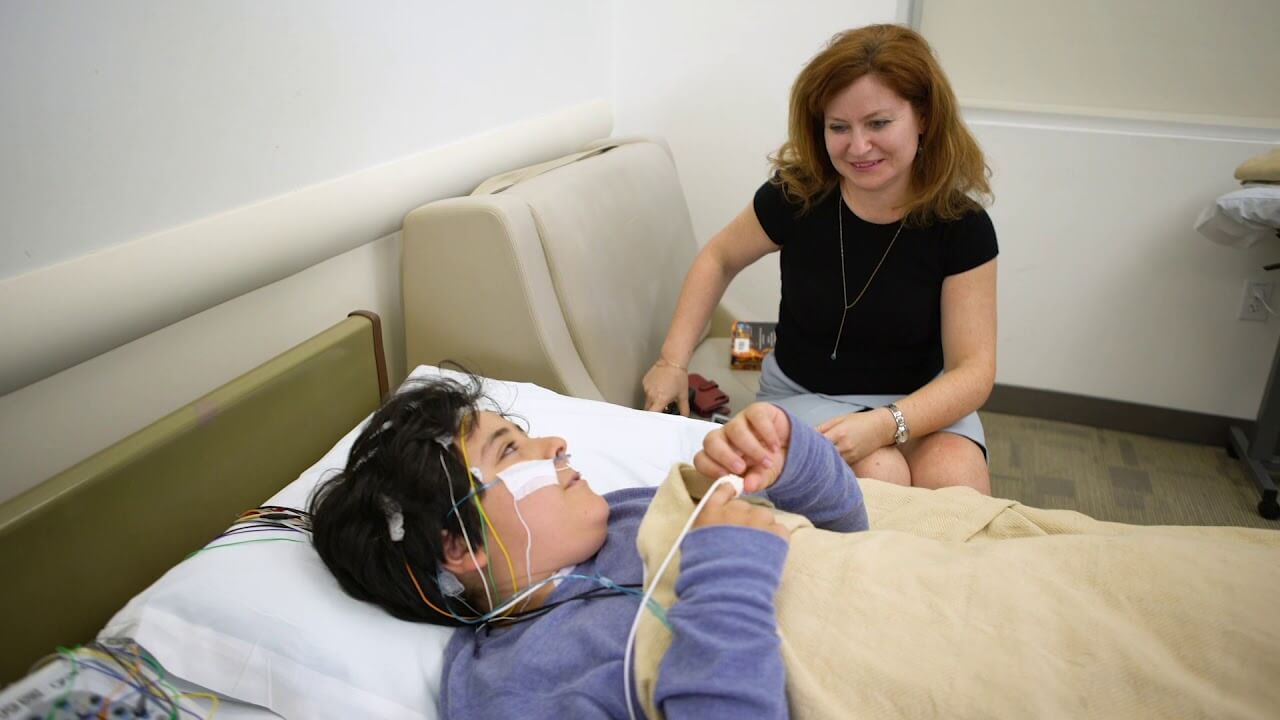How a Sleep Study Machine Can Help Diagnose Sleep Disorders: A Complete Guide
Sleep disorders affect millions of people worldwide, leading to poor health, reduced productivity, and an overall decline in quality of life. Diagnosing sleep disorders accurately is crucial for effective treatment, and this is where a sleep study machine plays a vital role. This advanced device helps healthcare professionals monitor and analyze sleep patterns, leading to a proper diagnosis and tailored treatment plans.
If you or a loved one is struggling with sleep disturbances, learning about sleep study machines and how they function can help you understand the importance of sleep assessments and how they can improve overall well-being.
What Is a Sleep Study Machine?
A sleep study machine is a specialized medical device designed to monitor various physiological activities during sleep. It records important data such as brain activity, oxygen levels, heart rate, breathing patterns, and muscle movements. This data is used to diagnose conditions like sleep apnea, insomnia, restless legs syndrome, and narcolepsy.
The machine is typically used in sleep clinics, hospitals, or at-home sleep studies. Depending on the condition being diagnosed, different types of sleep study machines may be used, each equipped with unique features to capture the necessary information.
How Does a Sleep Study Machine Work?
1. Preparation for the Sleep Study
Before the test begins, a healthcare provider will explain how the machine works and what to expect during the study. For in-clinic tests, sensors will be attached to different parts of the body to measure various physiological responses.
2. Monitoring During Sleep
As you sleep, the machine collects data on:
- Brain waves (EEG): To analyze sleep stages and detect abnormalities.
- Heart rate and rhythm (ECG): To check for irregularities during sleep.
- Breathing patterns: To identify issues like sleep apnea.
- Oxygen levels (SpO2): To monitor oxygen fluctuations throughout the night.
- Muscle movements (EMG): To detect restless leg syndrome or periodic limb movement disorders.
3. Data Analysis and Diagnosis
Once the test is completed, a sleep specialist will analyze the collected data. Based on the findings, a diagnosis will be made, and appropriate treatment options will be recommended.
Common Sleep Disorders Diagnosed with a Sleep Study Machine
1. Obstructive Sleep Apnea (OSA)
One of the most common sleep disorders diagnosed using a sleep study machine is obstructive sleep apnea. This condition causes breathing interruptions during sleep, leading to daytime fatigue, snoring, and other health complications.
2. Insomnia
While insomnia is primarily a behavioral disorder, a sleep study can help rule out underlying physiological causes such as restless leg syndrome or apnea that may be contributing to sleep difficulties.
3. Narcolepsy
A sleep study machine helps in diagnosing narcolepsy by measuring excessive daytime sleepiness and detecting abnormalities in sleep patterns.
4. Restless Leg Syndrome (RLS)
Individuals with RLS experience involuntary leg movements that disrupt sleep. The study helps track movement frequency and severity.

In-Clinic vs. At-Home Sleep Studies
In-Clinic Sleep Study
- Conducted in a sleep lab with advanced monitoring equipment.
- Recommended for severe or complex sleep disorders.
- Provides highly accurate and detailed data.
At-Home Sleep Study
- Uses a portable sleep study machine for monitoring at home.
- More convenient and comfortable for patients.
- Best suited for diagnosing mild to moderate sleep apnea.
Benefits of Using a Sleep Study Machine
1. Accurate Diagnosis
Without proper diagnosis, sleep disorders can go untreated, leading to severe health complications. A sleep study machine provides detailed insights that help medical professionals make informed decisions.
2. Early Detection of Health Risks
Sleep disorders are often linked to other serious health conditions such as heart disease, diabetes, and high blood pressure. Detecting and treating these disorders early can significantly reduce health risks.
3. Personalized Treatment Plans
By analyzing sleep patterns, doctors can tailor treatment approaches to suit each individual’s needs. This may include lifestyle changes, medication, or the use of CPAP (Continuous Positive Airway Pressure) machines.
4. Improved Quality of Life
Getting diagnosed and treated for sleep disorders leads to better sleep quality, increased energy levels, and enhanced cognitive function, improving overall well-being.

How to Prepare for a Sleep Study
To ensure accurate results from a sleep study machine, proper preparation is necessary. Here are some essential tips:
- Avoid caffeine and alcohol on the day of the test, as they can interfere with sleep patterns.
- Follow your usual sleep routine to get natural sleep data.
- Wear comfortable sleepwear to make the experience more relaxing.
- Inform the doctor about medications you are taking, as some may affect sleep.
- Get plenty of rest the night before to avoid excessive fatigue, which can alter test results.
What to Expect After a Sleep Study
1. Results Analysis
After completing the test, a sleep specialist will review the data and generate a report detailing any sleep abnormalities detected.
2. Treatment Recommendations
Depending on the diagnosis, treatment options may include:
- CPAP therapy for sleep apnea.
- Medication or behavioral therapy for insomnia.
- Lifestyle changes, such as weight loss and improved sleep hygiene.
3. Follow-Up Appointments
Regular follow-ups may be required to assess treatment effectiveness and make necessary adjustments.
Conclusion
A sleep study machine is a crucial tool in diagnosing and managing sleep disorders. By providing accurate insights into sleep patterns and detecting underlying conditions, it plays a significant role in improving overall health and quality of life. Whether you undergo an in-clinic or at-home sleep study, understanding the process and benefits can help you take proactive steps toward better sleep health. If you suspect a sleep disorder, consult a healthcare professional to determine whether a sleep study is right for you.
Other resources
Sleep Testing in Brisbane: What to Expect and How to Prepare for Your Study

